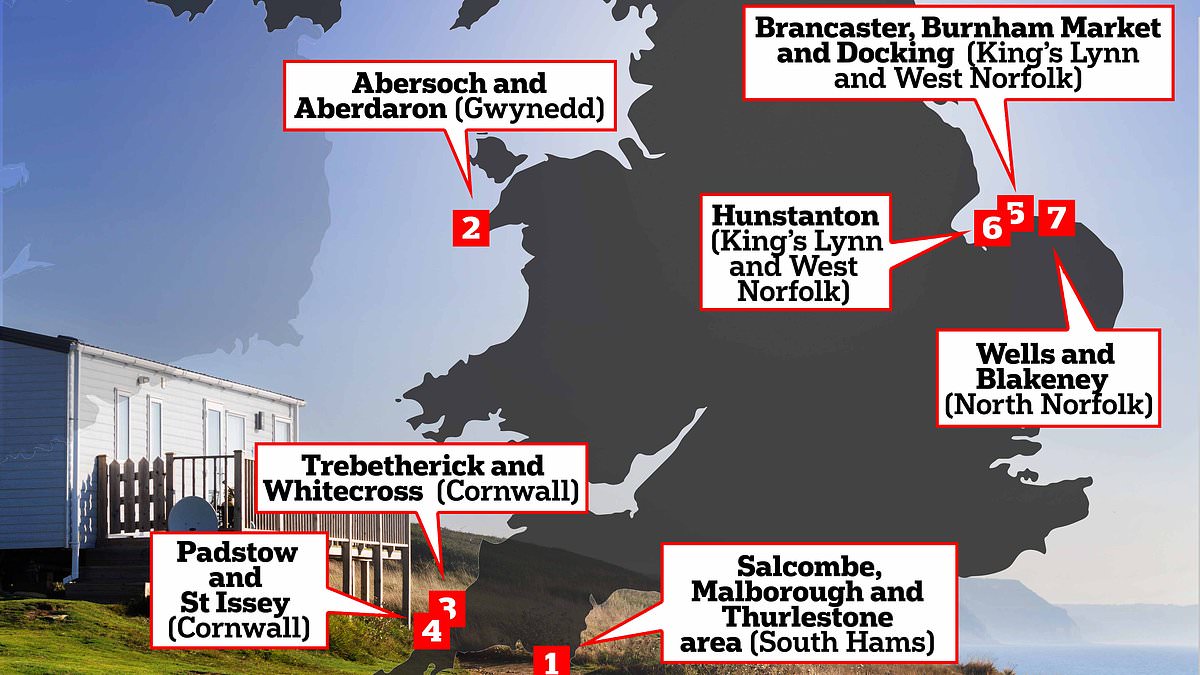Councils across England are increasingly calling for more powers to take control of empty properties and deal with holiday homes amid growing pressures on housing.
Some 260,000 residential properties in England have been empty long term, while there are 70,000 holiday homes in England and Wales, according to official data.
Local authorities are now pursuing council tax premiums, handing out refurbishment grants and asking genealogists to help them identify unknown property owners.
While they look into any legal way to take control of empty homes, councils are also calling on the Government to help them with new policies and more resources.
Ministers have said they are trying to make things easier for councils by allowing them to increase the rate of council tax on properties empty for at least one year.
Housing Secretary Michael Gove is bringing in the higher levy, which is double the rate of the present standard figure, as part of the Levelling Up and Regeneration Act.
Other new policies include a new double council tax charge on furnished second homes and higher bills for owners of homes unoccupied for more than five years.

Helen Dennis, cabinet member for new homes at Southwark Council in London, told the Financial Times: 'We've got a housing crisis... and so where we can bring properties back into use, we want to do that as soon as possible.
'Government policy is really prohibitive at the moment… we need more resources and more tools.'
She suggested landlords using Airbnb should have a registration scheme and higher housing allowance benefits.
The borough already has a small scheme of loans and grants to incentivise private owners to rent out empty properties, and has allocated extra money for compulsory purchase orders.
In the impoverished East London borough of Tower Hamlets, the local authority is trying to crack down on empty units as it attempts to cut the waiting list for council housing from 23,000 people.
Its mayor Lutfur Rahman told the FT that homes were being built but left empty or vacant, adding that he 'would like to see long-term vacant second properties seized for rehousing of residents'.
And the West Yorkshire borough of Calderdale is trying to locate estate executors or living relatives of owners of properties that are empty as a result of probate – and is now getting help with this from genealogists.
Scott Patient, who leads the area's housing portfolio, told the FT: 'Even if we threw 100 people at this, it wouldn't necessarily make that much of a difference. There are no sanctions beyond - let's call it what it is - a small financial penalty.'
Meanwhile thousands of holiday homes registered in counties popular with Britons going on staycations such as Cornwall and Norfolk have created a crisis for locals.
They are pushing up housing prices, meaning many people living in these areas can no longer afford to buy or rent there.
The Government has sought to crack down on the issue, with Mr Gove outlining measures to make it harder for existing homes to be used for short term lets.
And it was suggested last November that seaside towns blighted by such properties must reserve new properties for buyers with local connections.
Tory MPs urged the Government to ensure those with a local connection to the area - whether they work, live, or were born there - must be prioritised over wealthier investors seeking to buy and rent out multiple homes.
One in ten homes are now used as holiday lets in seven pockets of England and Wales, according to 2021 census data issued by the Office for National Statistics last June.
Top of the list is the Salcombe, Malborough and Thurlestone area of South Hams in Devon, where there were 171.9 holiday homes for every 1,000 properties.
The Welsh coastal area of Abersoch and Aberdaron in Gwynedd was in second with 153.3 holiday homes per 1,000 properties.
The rest of the seven were made up of two areas of Cornwall and three in North Norfolk.
Around 70,000 second addresses were used as holiday homes, visited by more than 200,000 people in England and Wales, with holiday homes now accounting for 4.1 per cent of all second addresses.
They are mainly concentrated in coastal areas, Areas of Outstanding Natural Beauty or national parks, including the Lake District, Dartmoor and Eryri (Snowdonia).
A Department for Levelling Up, Housing and Communities spokesman said: 'We have reduced the number of long-term empty homes by more than 50,000 since 2010 by giving councils powers to bring empty properties back into use to deliver new homes for communities.
'We have also recently laid out our ambitious long-term plan for housing and are on track to deliver one million homes this parliament.'
And Councillor Darren Rodwell, housing spokesperson for the Local Government Association, told : 'At a time when we face a chronic housing shortage across the country it is wrong for so many homes to be left empty. Councils work hard to address the issue, but the existing measures are clearly falling short.
'Councils share a collective national ambition to tackle local housing challenges. The Government should also support this ambition by implementing our six-point action plan so that councils can resume their historic role as a major builder of affordable homes.'
